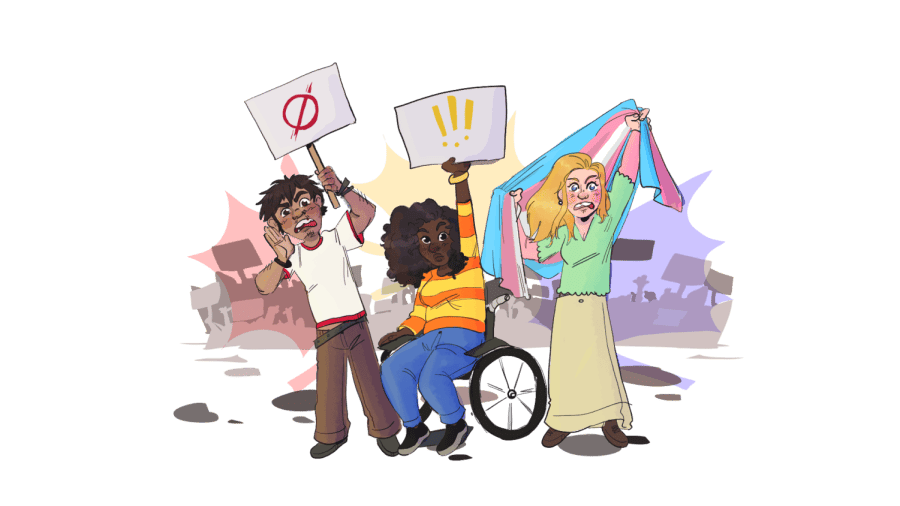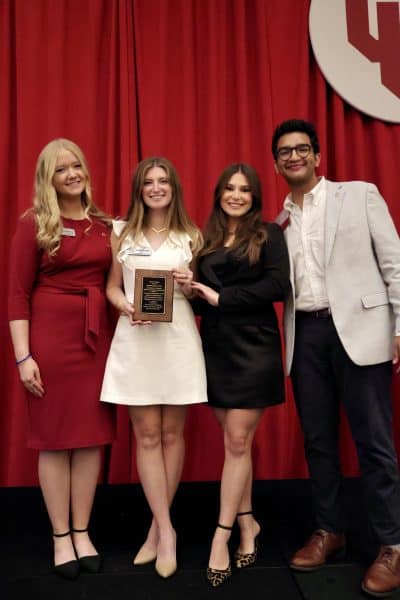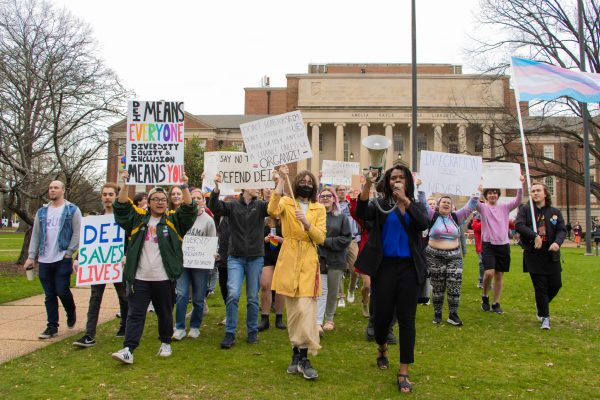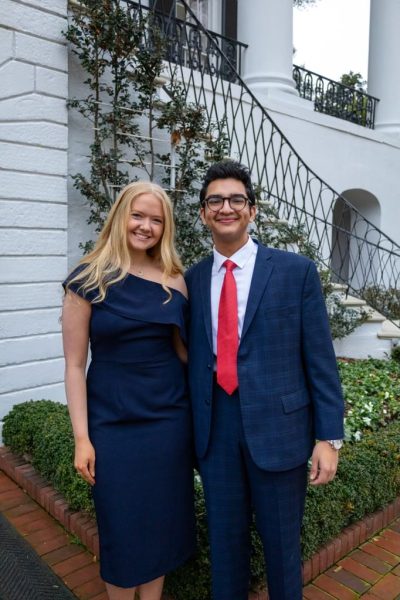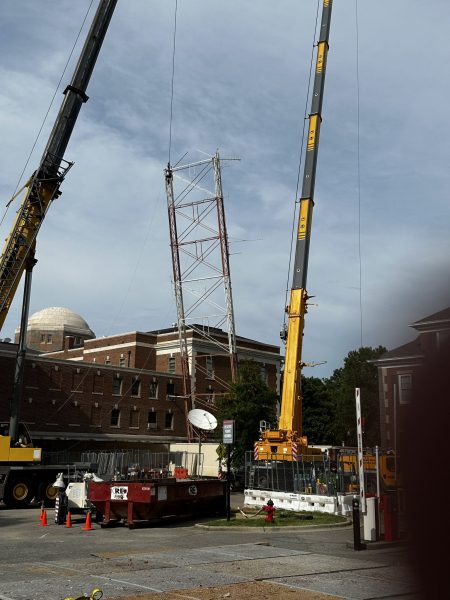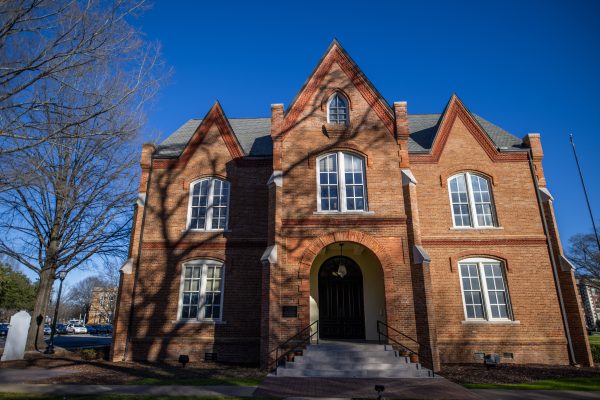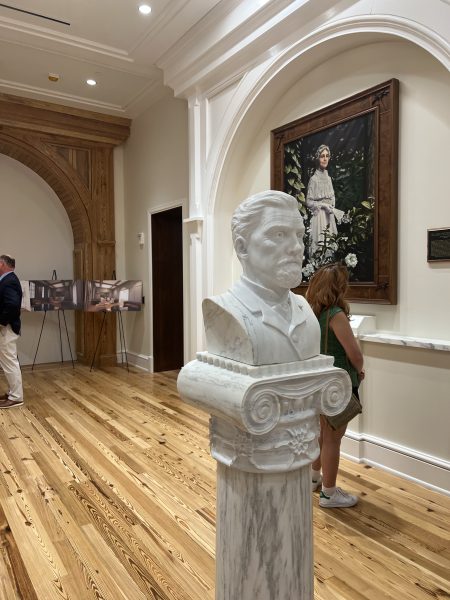Changing the Tides: How student organizations are championing change at UA
February 2, 2023
For Kaila Pouncy, a UA senior majoring in criminal justice and political science, her passion for prison reform was sparked during an internship.
The summer before her sophomore year, Pouncy interned for a federal judge. While sitting in on a proceeding, she watched a man automatically receive a life sentence due to three-strike laws, which are laws designed to subject repeat offenders to harsher punishments.
“He had maybe one family member there, and when the judge sentenced him he literally broke down into tears, and so did his one family member,” Pouncy said. “Everyone got really emotional watching it.”
One of her fellow interns said that she did not empathize with the man’s plight, and Pouncy found that their debate about the situation sparked a curiosity, not only about the prison system, but also about how to help those disproportionately or unfairly affected by it.
“At this point, I hadn’t really narrowed down what I wanted to do, or how to use my experience and community work to help people,” Pouncy said. “But this moment, this realization that [the prison system] is such a huge problem almost felt like electricity.”
Pouncy said that she hopes to use this “electricity” to make students on campus aware of the problems within the prison system through educating others and fostering understanding.
For students like Pouncy, attending The University of Alabama presents an opportunity to make waves in the local and statewide social landscape, and many do this through involvement with student organizations that tackle social issues. Tide Against Time, Students for Sensible Drug Policy and HopeU are three such organizations.
TIDE AGAINST TIME
Tide Against Time, which Pouncy founded in January 2022, primarily educates students through social media posts explaining the problems in the United States prison system. They also host events and speakers, as well as run donation drives. In April 2022, TAT hosted Alabama Appleseed, a non-profit advocating for prison reform, to speak on the current state of Alabama’s prison system. From this event, they collected and donated 326 items to Aid Inmate Mothers in Montgomery.
Pouncy stressed the importance of listening to others in order to make change.
“The condition of these facilities is horrible, and it’s right in front of our faces,” Pouncy said. “Most people think, ‘If you aren’t willing to succumb to, don’t commit the crime.’ But it’s not that easy, because there are people who find themselves in really tough situations, and that can really derail a person’s life.”
More than anything, Pouncy said it is important to address these problems at their roots.
“If I could plaster anything on a billboard, it would be ‘Crime is not random,’” Pouncy said. “It’s often the result of needs that are going unmet. It’s a cry for help. The key to addressing this is putting our ears to the ground in these communities and figuring out what is missing so that we can address it.”
STUDENTS FOR SENSIBLE DRUG POLICY
Education is a pillar to many social justice organizations, including Students For Sensible Drug Policy.
UA SSDP Founder Marlie Thompson, a sophomore majoring in interdisciplinary studies with a focus on sociology and social advocacy, said that though SSDP at the University is a chapter of a larger national organization, there were no chapters in the state of Alabama before she became a UA student.
“[Alabama] has the highest opioid prescription rate in the country, and it kills thousands of people,” Thompson said. “I saw a need in Alabama specifically for this kind of education, so I got involved.”
Thompson said that, considering how often students on campus encounter drugs, the misconceptions she saw acquaintances hold were alarming.
“I heard someone once say that they thought LSD and acid were the same thing,” Thompson said. “Or that molly and ecstasy are different. I’m so relieved we are getting to these people and educating them before they try drugs.”
These misconceptions are not only harmful to one’s health, Thompson said, but they are also harmful to society at large.
“The average sentence for a crack offense is 18 times longer than a cocaine offense for the same amount of the substance,” Thompson said. “And this really brings the implications of these misconceptions to light — this is a direct product of the War on Drugs, which popularized the idea that crack is a poor, ‘Black’ drug and cocaine is more ‘white collar.’ But they’re the same thing, chemically speaking.”
Thompson has spearheaded events and efforts to make students more educated and, overall, safer. During the Fall 2022 Get On Board Day, SSDP handed out free fentanyl testing strips.
“I saw on YikYak the day after that someone posted about finding fentanyl in their drugs,” Thompson said. “I don’t have proof that it was our fentanyl testing strips that found it, but either way it goes to show how important and useful these are on college campuses.”
More recently, SSPD has worked alongside the Student Government Association to propose new legislation regarding drug overdoses.
The legislation will challenge parts of UA’s Medical Emergency Assistance Policy that lack sufficient protections for students who overdose.
Additionally, SSDP’s legislation will demand more comprehensive drug training for both students and University staff, such as requiring UA Housing to train staff to administer NARCAN.
SSPD’s overall goal, Thompson said, is to give students the tools they need to make informed decisions and address stigma surrounding drugs.
“Telling people what different drugs will do to their body is just as important as giving out test strips,” Thompson said. “Drugs as a whole are not inherently bad, even though that’s what we are all taught. [SSDP] is about giving out information so that students can be educated on what they put in their bodies.”
HOPEU
Beyond education, some organizations work to put in time to directly impact the causes they are part of. HopeU is a Christian organization that seeks to educate, support and raise awareness for victims of human trafficking.
The campus organization is part of a collegiate initiative to “traffic hope,” and stems from the Church of the Highlands, which is based in Birmingham, Alabama. HopeU, which started its UA branch in the fall of 2021, spreads a message of hope and awareness through social media posts and organizes awareness/prayer walks.
Caroline Quinn, a senior majoring in finance, accounting and theater and vice president of HopeU, said that, over the next semester, HopeU wants to mobilize to do more donation drives, but its limited resources and membership restricts what it can do. The organization has still been able to help victims by organizing events and giving time to victims at the Well House, which is an organization that offers “medical, mental and emotional care” to victims of human trafficking.
“Whether they need prayers, or cards, or items, or just people to donate their time or an ear, we’re here,” Quinn said.
Quinn said her interest in supporting this cause came from volunteering at the Well House.
“There was once when I went, and I met this woman in her 30s,” Quinn said. “And we did this activity with them where we painted and talked about their experiences, and the way this woman talked was amazing. She talked about her experiences, and made it clear that they were horrible, but she never described herself as a victim. She was confident that she came out of this stronger, and it was so powerful to me.”
Quinn said that Tuscaloosa is an especially concerning spot for human trafficking.
In October 2022, the West Alabama Human Trafficking Task Force reported that trafficking spikes during major events in Tuscaloosa. Just recently, on Jan. 20, 15 people were arrested on charges of human trafficking, as well as prostitution and drug charges. These arrests were the result of two separate investigations — one involving an underage victim, the other involving victims performing commercial sex acts in a Tuscaloosa hotel on the south side of town.
“With Tuscaloosa’s location right on I-20, it’s very connected to the rest of the world,” Quinn said. “Going to the Well House and seeing girls my age who got trafficked ten miles from where I live really opened my eyes. This isn’t some scary thing that happens in stories, it’s real and it’s here.”
Above all, Quinn emphasized the importance of unconditional support for victims.
“So many people get sucked into this despicable thing, because they trust the wrong person who just wants to use them, or they fall down the wrong path, and they think they have no hope — which is heartbreaking,” Quinn said. “So, we really want to drive home that survivors are loved, cared for and enough, despite what they’ve been through.”
Through donation drives or raising awareness, UA students can and do mobilize for important causes during their time on campus. For them, change starts in the present – one event, infographic or SGA resolution at a time.
To get involved, you can follow TAT, SSDP and HopeU on their respective Instagram accounts, which is where these three organizations primarily advertise events/make educational posts, as well as keep an eye on their respective pages on The SOURCE.

